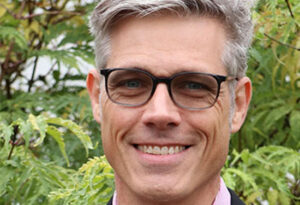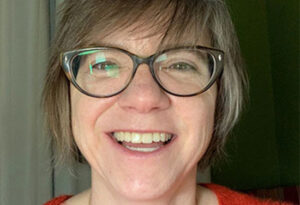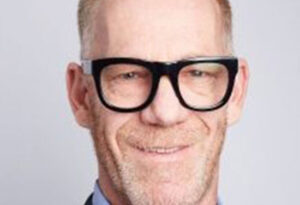 Each time Dessi Zaharieva shares her story about life with type 1 diabetes (T1D) she not only leaves her audience inspired, but in awe. That is because the engaging 30-year-old with an indomitable spirit never let her condition impede her dreams of becoming a consummate academic in the field of diabetes and a highly accomplished mixed martial artist.
Each time Dessi Zaharieva shares her story about life with type 1 diabetes (T1D) she not only leaves her audience inspired, but in awe. That is because the engaging 30-year-old with an indomitable spirit never let her condition impede her dreams of becoming a consummate academic in the field of diabetes and a highly accomplished mixed martial artist.
Dessi and her family emigrated from Bulgaria to Toronto in 1993. When she was was seven years old, her parents took her to the hospital to ‘pick up some medication’. Little did Dessi know that she would end up spending the day being poked and prodded and later told that she had T1D.
“My parents were quite scared, so they were beside my hospital bed in tears,” recalls Dessi. “English was their second language and not understanding all the doctor’s jargon definitely made my diagnosis one of the most challenging times for them. I was just trying to wrap my head around this new disease and new life requiring daily insulin injections.”
Learning to adjust to her condition proved demanding at first, especially when it came to practising sports – one of her passions.
“Living with T1D is very similar to our blood sugars; there are many ups and downs, highs and lows,” Dessi explains. “My biggest challenges were often related to exercising.”
Prior to her diagnosis, Dessi had enrolled in a Taekwondo class with her brother. Despite not knowing how it would affect her T1D, she was determined to continue.
“When I was a young kid, we didn’t have access to support groups or as many published research studies,” she recounts. “My family also didn’t know that different types, intensities and durations of exercise could impact blood sugar levels and that the risk of hypoglycaemia is elevated for at least 24 hours in recovery from exercise.”
Preparing for national and international martial arts competitions was another learning curve for the aspiring young athlete. At the age of 16, Dessi earned a spot on Team Canada for the World Championships, a biennial athletic competition. For many summers, she returned to her native Bulgaria to train with its National Team. Despite a torn meniscus and two torn ACLs – not to mention a surgeon who told her she would likely never compete again – Dessi pushed through rehab and returned to top form. In 2013, she competed at the International Taekwondo Federation World Championships in Bulgaria and won the bronze medal in women’s individual sparring in her weight category.
“I was trying to lose weight to fight in a lower weight category,” Dessi relates. “This meant that on top of my training, I was also trying to lower my carbohydrate intake, which led to a few scary episodes of hypoglycemia overnight.”
 These experiences sparked her interest in T1D research and acquiring a better understanding of human physiology and exercise metabolism. Last year – while working in the lab of JDRF-funded investigator Dr. Mike Riddell – Dessi earned her PhD in molecular, cellular and integrative physiology at the School of Kinesiology and Health Science at York University in Toronto.
These experiences sparked her interest in T1D research and acquiring a better understanding of human physiology and exercise metabolism. Last year – while working in the lab of JDRF-funded investigator Dr. Mike Riddell – Dessi earned her PhD in molecular, cellular and integrative physiology at the School of Kinesiology and Health Science at York University in Toronto.
“My research focus has always been related to strategies for improving diabetes management particularly around exercise,” says the recipient of the highly competitive and prestigious Vanier Canada Graduate scholarship for PhD research. “For me, the hardest thing about living with T1D is that no two days are ever exactly the same. We can try and control specific conditions, but there is so much individual variability, which is another reason why more research is needed in the field in order to establish guidelines and form consensus statements.”
Over the years, Dessi and her family have participated in JDRF’s annual Walk to help raise T1D awareness and funds for research. In 2018, she served as Master of Ceremonies at the organization’s national leadership conference.
“Living with diabetes can feel so lonely at times, but being involved with JDRF events has given me an outlet and a support to share my story and also learn from others,” she says.
Today Dessi is a mixed martial artist and a flourishing young scientist. She is also a regular at Dskate, a hockey and diabetes educational camp for youth living with T1D. As well, she is part of the I Challenge Diabetes team, a group dedicated to creating opportunities for people with T1D of all ages to overcome obstacles and find support.
For the past six months, Dessi has been conducting post-doctoral research under the mentorship of Dr. David O’Neal at The University of Melbourne in Australia. Some of the topics range from next-generation closed-loop systems and exercise to implantable sensor technology and faster-acting insulin.
“JDRF has always been committed to raising money to support cutting-edge research,” relates Dessi. “As a scientist and a patient with diabetes, the focus on finding a cure hits really close to home.”
In the future, Dessi hopes to have her own research lab. Yet a cure for T1D remains her foremost wish.
“A cure would mean…freedom and conquering,” says Dessi. “It would mean that for once, we could focus on something other than our diabetes. We would not have to think about whether we have our needles, glucose meters, insulin, pumps, reservoirs, cannulas, snacks, etc. each time we leave the house. It would also mean that as a team, we have succeeded with our research efforts.”
And while that would be a dream come true for many people, Dessi is quick to add that a cure would not detract from one positive aspect that came from growing up with T1D.
“A cure would not change the incredible community and support system we have around us,” she states. I have made so many lifelong friends who have now become my ‘chosen family’. And a cure would never take that away from me.”




